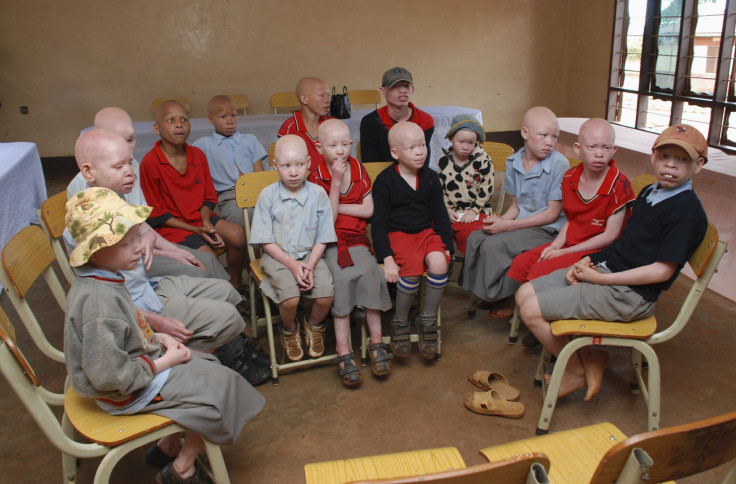It’s Fatal To Be An Albino In Tanzania Due To Cannibalism

In a continent where dark skin is the norm, a person who has the misfortune of being afflicted by the skin ailment albinism suffers not only social ostracism but also risks being killed for his flesh.
On Feb 14, one-year-old albino boy Yohana Bahati was added to the growing list of Tanzanians abducted and brutally killed due to many Africans still practicing cannibalism and black magic and believe that albinos have power which would be transferred to them if they ate the flesh of one.
Yohana was abducted from his mother Esther by an armed gang. Three days after, his corpse was found by Tanzanian police with chopped legs and arms at the Biharamulo Forest Reserve, according to Vice News.
Esther fought the armed gang who slashed her with a machete and threw her body a few miles from the family home. She survived the attack but is in a critical condition at a local hospital. Her two other children, also albinos, are under police custody and protection.
Since 2000, almost 75 albinos have been killed in Tanzania for their flesh which sells for $75,000 on the black market. Yohana’s kidnapping was the second in three months after a four-year-old Albino girl from the Lake zone of Tanzania was also kidnapped in December and remains missing until now, reports Reuters.
Some adult albinos, rather than witness their future children killed for their white skin, instead sell their own bodies.
The Bahati family live in a remote area that is environmentally protected which lacks development and security, making albino children vulnerable to kidnapping. The thick forest presents a very convenient cover for the abductors.
Alvaro Rodriquez, resident coordinator of the UN for Tanzania condemned the death of Bahati and warned that since 2015 is an election year for Tanzania, albinos are in danger because some candidates for public office may ask witch doctors to make albino human sacrifices for them to have better chances of winning the election.
Albinism is a congenital ailment. About 20,000 people suffer from that condition across the globe, majority of whom live in sub-Saharan nations. One in every 1,400 Tanzanian is an albino.
It is one of several genetic defects that results in little or no pigment in the skin, hair and eyes which are unable to produce or distribute melanin. Treatment involves only relieving symptoms such as using sunblock and sunglasses.
To contact the writer, email: v.hernandez@ibtimes.com.au





















